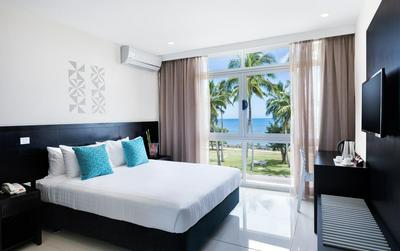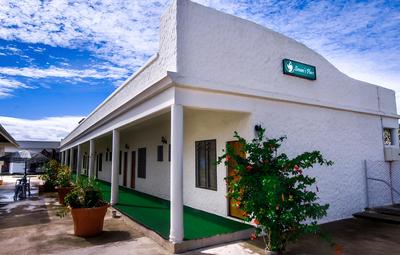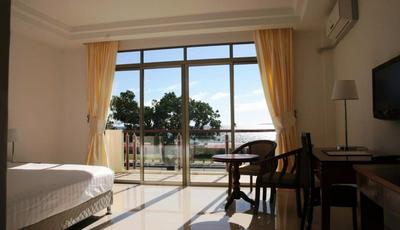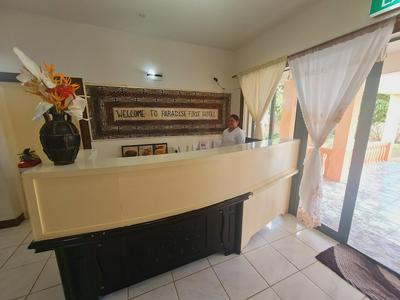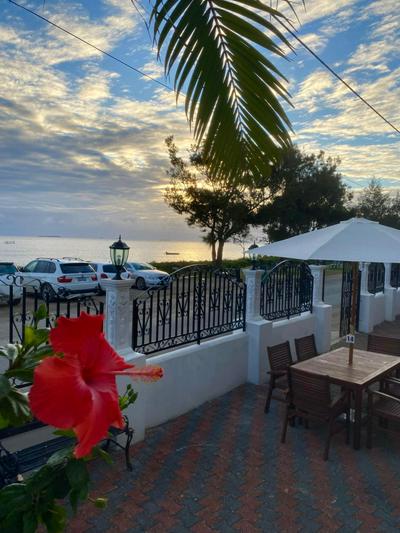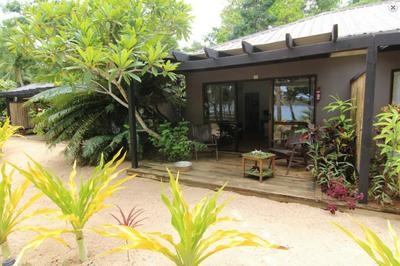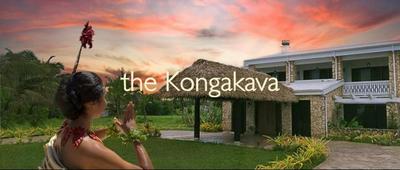When to visit Tonga during the year?
Tonga enjoys a tropical maritime climate, making it a fantastic destination year-round. The best time to visit is during the dry season, from May to October, when temperatures typically range from 24°C to 30°C (75°F to 86°F). This period is perfect for enjoying outdoor activities and the pristine beaches on islands like Tongatapu and Vava'u. The wet season occurs from November to April, bringing higher humidity and occasional tropical storms, especially in January and February. Summer is ideal for water sports, while autumn brings beautiful sunsets and whale-watching opportunities along the coast.
How to get to Tonga?
Reaching Tonga can be an adventure in itself, as it is an archipelago in the South Pacific. Most visitors arrive via air travel, but other options are limited due to the island's remote location. The main gateway is Fuaʻamotu International Airport (TBU) on Tongatapu, which connects visitors to major international cities.
- Main airports and major international routes: Fuaʻamotu International Airport (TBU) is the entry point from Sydney (SYD), Auckland (AKL), Los Angeles (LAX), and Nuku'alofa (NOU).
- Low-cost airlines: Although limited, some regional carriers offer budget flights directly to Tonga.
- Flight times: From Sydney to Tonga, it takes around 3.5 hours; Los Angeles to Tonga is about 9 hours.
- Although Tonga has an extensive local bus system on the main island of Tongatapu, no international bus services operate to Tonga.
- Local buses connect different communities and often circle around key tourist spots.
- There is no train service in Tonga.
- Locally, travel is mainly conducted via bus or taxi services.
- The main roads on Tongatapu are well-maintained, with some more rural areas being less developed.
- Distances: The main island is about 260 square kilometers; driving around takes approximately 2-3 hours.
- Road conditions: They are generally good, but caution is advised in rural locations.
Tourist activities in Tonga
Tonga is teeming with diverse activities for travelers to enjoy, from exhilarating adventures to serene relaxation spots. Begin your journey at the stunning beaches like Ha'atafu Beach on Tongatapu, where you can swim, snorkel, or simply unwind under the sun. The crystal-clear waters are perfect for reef diving, particularly around Vava'u, home to vibrant marine life and stunning coral reefs. Nature enthusiasts can hike on the beautiful trails of ‘Eua National Park, where lush rainforests and unique wildlife abound. For those seeking cultural experiences, attend a traditional Tongan feast or a ceremony to understand the local customs and heritage. Don't miss the opportunity to witness the majestic humpback whales from July to November during their migration. With various themes like adventure, relaxation, and cultural exploration, Tonga offers something unique to every traveler.
Accommodation in Tonga
Tonga boasts a variety of accommodation options to suit every budget and preference. Luxury resorts, such as the luxurious Likualofa Beach Resort on Tongatapu, provide stunning beachfront views and top-notch amenities. Prices at these establishments usually range from $150 to $300 per night, depending on the season. For more budget-friendly stays, guesthouses and hostels are prevalent, averaging around $40 to $80 per night, often providing a more local experience. During the peak tourist season from May to October, you may want to book early as accommodations can fill up quickly. For travelers looking for unique experiences, charming lodges or traditional Tongan huts, known as ‘fale,’ offer an authentic feel of the islands. Considering the varied options, you’re sure to find something that meets your needs in this beautiful archipelago.
Food in Tonga
The culinary landscape of Tonga is rich with fresh seafood, tropical fruits, and local specialties that reflect the island’s heritage. Popular dishes include ‘ota ika, a refreshing raw fish salad marinated in coconut milk and lime, a must-try! Another staple is ‘lu sipi, which features lamb wrapped in taro leaves, cooked to perfection. Don’t overlook delectable desserts like kok tuku, made from taro and coconut, often enjoyed during festive occasions. A typical meal can range from $10 at local markets to $30 at restaurants. When dining, consider visiting local markets where you can enjoy freshly prepared meals and immerse yourself in Tongan culture. The country’s laid-back vibe is mirrored in its dining options, so take your time to relish both the food and the leisurely atmosphere.
Important numbers and information
- Emergency services: Police - 911, Ambulance - 911, Fire brigade - 911
- Embassy contacts: Tongan Embassy in Australia - (+61) 2 6286 8600
- Aeropuerto: Fuaʻamotu International Airport (TBU), Tongatapu, Tonga
- Currency: Tongan Paʻanga (TOP); Payment methods: Credit cards accepted mostly in hotels and larger restaurants, cash is preferred.
- Visa requirements: Most visitors can obtain a visa on arrival for a stay up to 30 days (check individual country requirements).
- Passport validity: Ensure a valid passport with at least 6 months of remaining validity beyond your intended departure date.
What to see in Tonga?
Tonga is filled with breathtaking scenery, rich history, and cultural experiences. Notable attractions include the capital, Nuku'alofa, showcasing the Royal Palace and beautiful markets. Tongatapu, the main island, features stunning cliffs and blowholes at the southern coast like the famous Blowholes of Mapu’a ‘a Vaea. Journey to the enchanting island of Vava'u for its stunning lagoons and excellent whale-watching. Humpback whales gather here between July and October, providing breathtaking sighting opportunities. Don’t forget the ancient archaeological site of Ha’amonga ‘a Maui, also known as the ‘Stonehenge of the South Pacific,’ offering a glimpse into Tonga's enigmatic past. These highlights, alongside cultural festivals and local traditions, make Tonga an alluring destination beckoning travelers to explore.
History, geography and climate
Tonga’s history dates back over 2,500 years and showcases a fascinating blend of Polynesian culture and European influence. From its establishment as a unified kingdom in the 19th century to its interactions with explorers and missionaries, Tonga has retained a strong connection to its heritage. Geographically, it consists of 176 islands, with the main ones being Tongatapu, Vava'u, and ‘Eua. The lush landscapes feature volcanic origins with picturesque beaches and rugged mountains. Tonga has a tropical maritime climate with temperatures averaging 23°C (73°F) during winter and 30°C (86°F) in summer, accompanied by occasional tropical storms in the wet season. Understanding Tonga’s past and its beautiful geography helps illustrate why it remains one of the Pacific’s most cherished paradises.
Population and culture
Currently, Tonga has a population of around 105,000 residents, primarily embracing Tongan, English, and some other Pacific island languages. The predominant religion is Christianity, influencing local customs and cultural celebrations, which include vibrant festivals such as Heilala Festival. Tongan culture is renowned for its communal lifestyle, where family and lineage play a significant role. Traditional practices, such as weaving, tattooing, and dance, are still actively practiced today, fostering a strong sense of identity. Unique cultural features include the royal family’s influence and traditional ‘fa’a Tonga’ customs, establishing a sense of unity among its people. Tonga’s rich cultural tapestry offers an inviting experience for visitors eager to delve into the island's lifestyle.

